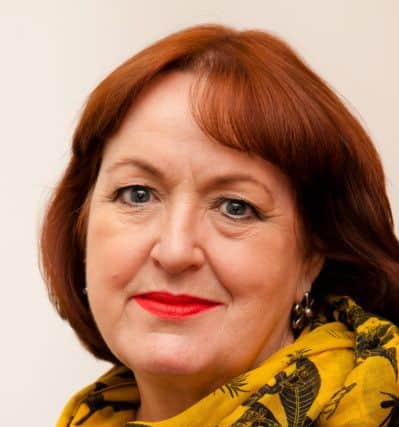Lesley McLeod: No one knows what the future might hold – so get that paperwork sorted


At a time when attention is being drawn to mental health, and we are staring down the barrel of the horrors of Hallowe’en, I’m going to tell you a salutary story.
My mother – a gloriously determined 90-year old – refused to acknowledge that time’s winged chariot wasn’t so much catching up with her as in imminent danger of running her over. She had a will but wouldn’t have anything to do with a power of attorney.
Advertisement
Hide AdAdvertisement
Hide AdShe has just moved into residential care. As a family we are clearly fortunate that, due to my late father’s wonderfully generous occupational pension, we had the latitude to choose a home to suit my mother.


Even so, going to visit care homes is no fun and you soon realise that not only are residential homes terrifyingly expensive but the escalating exchange of lucre is no gauge of care. Before choosing, I ploughed through inspection reports and asked numerous questions about food, activities and the number of staff who were on duty at night.
I don’t say this to sensationalise the situation. Nor would I ever hold my deeply loved mother up to ridicule. But the point is that, when mum lost capacity, she also lost her ability to have a say in how she should be cared for. And, because there was no power of attorney, it mattered not one jot that I knew what she might want as I was powerless to do anything about it.
I have gone to court to be appointed mum’s guardian. This is a soul-destroying, stressful and ultimately lonely process of interminable length involving social workers, doctors, lawyers and a judge in full rig-out. The powers I was requesting were referred to by number and the real victim, a frightened sufferer of a complex mental illness, seemed hardly to feature at all.
Now, I can sense you wondering how this sad story can be of anything other than an issue of passing sympathy. Mum is old and her illness not unusual. But dementia is just an example – incapacity can affect anyone, any time. In younger people, it is often traumatic, unexpected and immediate. There’s no going gentle into the good night – it’s just curtains for capacity.
You never know when something might rob you of your reason. It could be a mental illness – like schizophrenia. It might be an accident – you could be cycling to work and get clipped on the back of the head by the wing-mirror of a bus. It could be a disease. It might be a tumour. It could even be something sadly common in construction, my current line of work at the Association for Project Safety, where accidents involving things falling from height remain one of the greatest causes of accidents on site.
The point is, it could happen to anyone. Without warning.
Mental illness will affect many of us at some point in our lives. At any one time it hits about one in four construction workers. Thankfully, with treatment, most cases will be eminently treatable, responding well to drugs or therapy.
But, too often, we hide away, elevating mental illness to one of the scariest monsters of our times. Mental illness always seems to lurk just beyond our view. We fear illnesses that steal away the person we believe ourselves to be. We don’t face it in the mirror in case no one stares back.
Advertisement
Hide AdAdvertisement
Hide AdI believe we need to be open and honest even when it is tough to talk. Society needs to treat mental illness as it would treat any other potentially life-threatening disease. Carers need the love and support of friends and family. Take everything on offer that might help – you wouldn’t think twice if it was cancer. At national and international level more research and money are needed to tackle mental health issues and deal with their social and medical consequences.
Individually, we must quit denial, square up and stop prevaricating. Get the paperwork in place, just as with organ donation, because no one knows what the future holds – or when it might descend upon us.
Lesley McLeod, chief executive, The Association for Project Safety